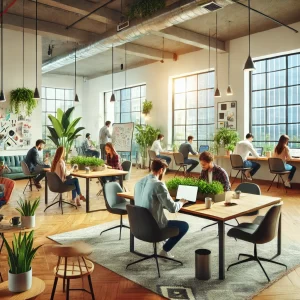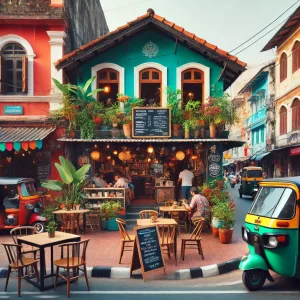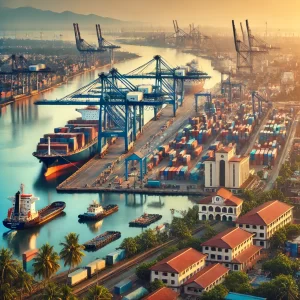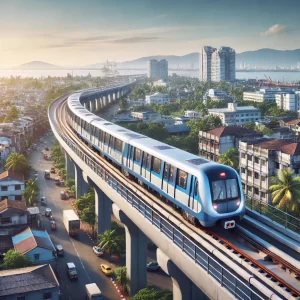The Best Hiking Trails Near Kochi for Nature Enthusiasts

Kochi, with its rich blend of cultural heritage and coastal charm, is not just a hub for history buffs and food lovers — it’s also a gateway to some of Kerala’s most breathtaking hiking trails. For nature enthusiasts, the areas surrounding Kochi offer a diverse range of trekking experiences, from misty hills and serene waterfalls to dense forests and panoramic viewpoints. Whether you’re a seasoned trekker or a beginner looking for a scenic walk, here’s a curated list of the best hiking trails near Kochi that deserve a spot on your travel itinerary.
1. Illithodu Forest Trek
Location: Near Malayattoor, 50 km from Kochi
Best Time to Visit: October to March
Difficulty Level: Moderate
Tucked away in the lush Malayattoor forest, the Illithodu trek is perfect for those seeking a mix of adventure and tranquility. The trail winds through dense greenery, with glimpses of the Periyar River along the way. The highlight is reaching the Elephant Crossing Point, where lucky hikers might spot wildlife. After the trek, you can visit the Malayattoor Church, a significant pilgrimage site.
Things to Do: Nature photography, birdwatching, and exploring the nearby bamboo groves.
2. Munnar’s Top Station Trek
Location: Munnar, 130 km from Kochi
Best Time to Visit: September to May
Difficulty Level: Moderate to Challenging
While Munnar is famed for its tea gardens, the Top Station trek offers an unforgettable experience. Starting from Kurangani, the trail takes you through lush meadows, forests, and plantations, culminating in panoramic views of the Western Ghats. The mist-covered valleys and cool breeze make this hike a must for nature lovers.
Things to Do: Visit tea estates, explore Eravikulam National Park, and shop for local spices.
3. Athirappilly Waterfalls Trek
Location: Chalakudy, 70 km from Kochi
Best Time to Visit: June to September for the waterfall’s full glory, October to February for trekking
Difficulty Level: Easy
Known as the Niagara of India, Athirappilly Waterfalls is a spectacular sight. A short, refreshing trek leads to the base of the falls, offering a stunning view of the 80-foot cascade. The surrounding rainforest is home to rare species like the Great Hornbill.
Things to Do: Explore Vazhachal Falls, visit the nearby Sholayar Dam, and enjoy a riverside picnic.
4. Thattekad Bird Sanctuary Trek
Location: 60 km from Kochi
Best Time to Visit: October to March
Difficulty Level: Easy
For wildlife and birdwatching enthusiasts, Thattekad Bird Sanctuary offers a gentle yet rewarding trek. The sanctuary, located on the banks of the Periyar River, is home to over 300 species of birds, including the Malabar Trogon and Sri Lanka Frogmouth.
Things to Do: Birdwatching, boating, and visiting the Salim Ali Bird Interpretation Center.
5. Meesapulimala Trek
Location: Near Munnar, 140 km from Kochi
Best Time to Visit: October to February
Difficulty Level: Challenging
For those seeking a more strenuous adventure, Meesapulimala, the second-highest peak in Kerala, offers an exhilarating trek. The trail takes you through rhododendron forests, rolling grasslands, and misty mountain ridges. The summit rewards hikers with panoramic views of the Western Ghats and the Kolukkumalai tea estate.
Things to Do: Camping, visit Kolukkumalai, and try fresh mountain-brewed tea.
6. Chembra Peak Trek
Location: Wayanad, 250 km from Kochi
Best Time to Visit: September to March
Difficulty Level: Moderate
Though a bit farther from Kochi, Chembra Peak is worth the journey. The trail leads to a heart-shaped lake — a romantic spot that’s popular among couples. The peak offers a sweeping view of Wayanad’s misty hills and valleys.
Things to Do: Visit Edakkal Caves, Soochipara Falls, and Wayanad’s spice markets.
7. Agasthyakoodam Trek
Location: Near Thiruvananthapuram, 230 km from Kochi
Best Time to Visit: December to April (requires special permission)
Difficulty Level: Challenging
For serious trekkers, Agasthyakoodam — Kerala’s second-highest peak — offers a truly rugged experience. It’s part of the Western Ghats Biosphere Reserve, known for its biodiversity. This trek is culturally significant too, with the peak named after the sage Agastya.
Things to Do: Explore the diverse flora and fauna, visit Ponmudi Hills, and discover traditional tribal settlements.
Tips for Hiking Near Kochi:
- Pack Light: Essentials include water, snacks, sunscreen, a hat, and a basic first aid kit.
- Wear Proper Gear: Comfortable, moisture-wicking clothing and sturdy shoes are a must.
- Respect Nature: Avoid littering, stay on marked trails, and avoid disturbing wildlife.
- Check Weather Forecasts: The region’s weather can change quickly, especially in the hills.
Kochi’s surrounding landscapes offer something for every type of hiker — from serene strolls to challenging climbs. Whether you’re chasing waterfalls, seeking wildlife, or aiming for a mountaintop sunrise, these trails promise unforgettable memories for every nature enthusiast.
So, lace up your hiking boots, grab your backpack, and explore the wild side of Kerala — starting from Kochi. Happy trekking!






